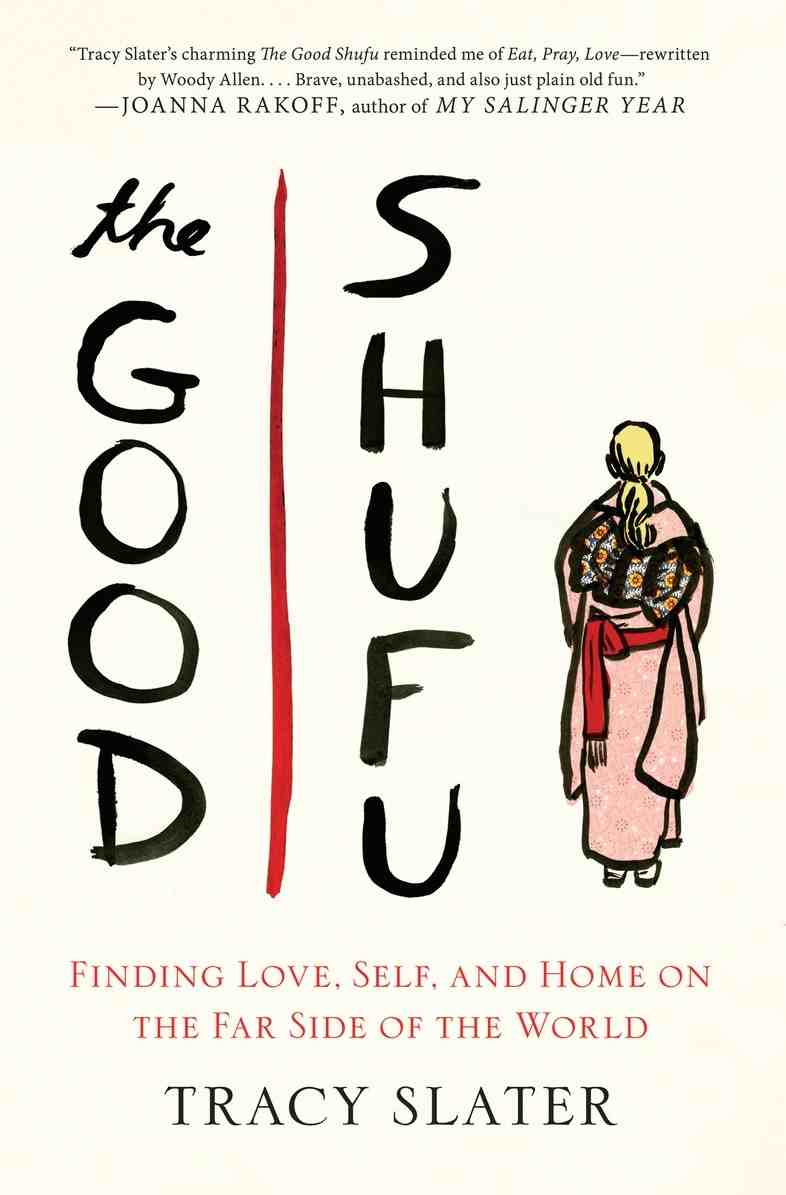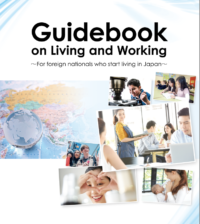- Belgium comes to Yamashita Park
- Residential Villa in Phuket Entices Remote Workers With Long-Stay Rates
- Rare pieces of French glass art at the Mirai Museum of Art
- Feast on fresh fish and seafood at the 2024 ‘Sakana’ Festival
- Would you like to ride in a Louis Vuitton gondola lift?
- Naked Snow Aquarium
- Festive lights at Yomiuriland will get you feeling the holiday vibes
Meet Tracy Slater

“Different social styles, similar family values”
Even with a great divide among religions and races across the world, love works in wonderful ways. American freelance writer Tracy Slater, found love in Japan with a Japanese husband.
But their story is statistically rare.
According to Japan’s Ministry of Health, Labour and Welfare, interracial marriages make up about 1 in 30 marriages. Of marriages involving Japanese men, only a paltry 1% is with an American wife.
In an interview with Tracy about The Good Shufu (The Good Wife), a book she penned for release next month, she shares some of her personal experiences and views about being in a kokusai kekkon (international marriage).
How did you and your husband cross paths? What would you say the attraction was?
He did an executive MBA at the university in Boston where I taught writing, so that’s why we met. And the attraction, at least for me, was pretty immediate. On his end, he did try to avoid me a little at first, but he now claims that’s because he was scared I was going to make him speak English. So guess how that turned out. I write much more about all of this in the first few chapters of the book, so in the interest of not making my editor mad, I won’t divulge the whole story here! (laughter)
How do you handle the role expected of you in a mostly traditional society like Japan, without having to lose your identity as a woman raised with Western values?
This is another topic I write about a bit in the book. In some ways, it’s been a real struggle for me, and in other ways it’s been surprisingly easy. I didn’t meet my husband until I was 36, and he 39 when we married. In Boston, I lived a very independent, single life, and part of that involved barely ever cooking. I also had a cleaning person come in to help clean my apartment, which is pretty common in the U.S. So the cooking and the cleaning here were a little hard for me to adjust to. Luckily, my husband helps clean now, and when I first started cooking, I cooked a lot for both my husband and his father, whom I adored. (He was a widower then and has, very sadly, since passed away.) Also luckily, neither one of them were picky eaters! And I learned that there was something really nice about cooking for and taking care of people that I love, so that made the transition easier. Also, because Japan is such a different culture, and the expectations around gender are so different from America–and especially from the liberal Northeastern US academic community I come from–sometimes playing the role of “shufu” feels like just that: a role I play. Paradoxically, that has actually made it easier for me to adjust to. Psychologically, it’s not hard for me to say that this isn’t really my culture or my world, even thought it’s my husband’s, so it’s not a threat to me to play a certain role while I’m here. It was quite a surprise to me, actually, when I realized this aspect of my identity as a Japanese housewife–that it could be both so close and so far away to what feels like my essential self, all at the same time.
Money: Who handles the purse strings?
My husband. He’s just a much better budgeter than I am.
Household: Who does the rubbish? I do. But he takes it out. So I guess I only wrap it up and put it by the front door. But I still say I do it!
Food: How do you decide what to eat on a day-to-day basis? Who cooks?
I cook, so I usually decide what I’ll make, but I frequently text him at work and ask if my idea sounds good, because he really does love to have someone cook for him, so I like to cook what he likes when I can. He loves eating at home, and I love eating out, so before we had a baby, we did half and half. Now it’s much harder to eat out with a little one, so I’m cooking a lot more.
Any favorite restaurants?
We used to live right in the center of downtown Osaka, and I loved so many of the restaurants there. Now we live in the suburbs just outside Tokyo, so there are fewer restaurants in walking distance, but there is a little upscale organic cafe near our house that I love and go to for lunch at least a few times a week, called Cachette. The food is amazing and the bread is to-die-for good, meaning I always get takeout, too. Plus, there is one bench seat that fits my daughter perfectly. So I still find a way to eat out!
Chemistry: What is it (mostly about values) that you argue about?
Well, I hope this doesn’t feel like a cop-out answer, but one major difference between us is that I’m more of an extrovert and he’s an introvert. He’s a very private person. (Poor guy: married a memoirist.) So while we actually don’t really argue about this, it is a major difference I know I need to work really hard to respect, given my work. Oh, another difference that we definitely argue about is the dishwasher: I load the dishes (a little haphazardly, one might say if one looked really hard), and he likes to come and rearrange them so they fit in better. When I’m in a good mood, I actually appreciate this. When I’m in a bad mood, not so much.
What’s great about your marriage?
At base, we have similar values about our family life and what’s important to us, even though our social styles are very different. And although it’s hard sometimes, I love being married to someone from such a different culture. The way he thinks is fascinating to me, and one thing I write about in the book is how Japan has taught me that, more important (to me) than having an easy or even simply happy life is having a life of wonder and fascination. And I really get that with him, and I feel really grateful for it.
What’s the most annoying habit picked up in Japan?
Bowing to strangers. I do it all the time when I’m back in the U.S. and feel like a total dork.
Now, about the book which I’m sure will be a page turner. What inspired you to write the ‘Good Shufu’ and what is it about?
It’s about finding love, hope, and home in the places we always swore we’d never go, and about what we both gain and lose when we surrender our plans, goals, and even homes for that age-old cliche: love. It’s a little different from other travel memoirs in that it’s about building a real life in a language you don’t speak and a land you can barely navigate, and yet somehow finding a truer sense of home and meaning than ever before. And I guess all of these topics are what inspired me to write the book–and the wonder in that we can spend our whole lives planning for one kind of life (for me, that was once the life of a highly independent Boston academic) and then comes the curve ball (in this case, Japan and a traditional Japanese salaryman), and when we just stop struggling against that curve ball and accept that life sometimes turns out differently than we had planned, we sometimes end up in a place that feels like where we were actually supposed to be all along.
On a more practical level, I wrote the book after an editor at my press, Putnam, read something that I wrote in the New York Times online and contacted me, asking if I’d be interested in submitting a memoir proposal. The article she’d read was one I’d actually written about my struggle to have a baby in my 40s and my experience going through years of infertility treatments and pregnancy losses in Japan. So when I submitted the proposal and Putnam accepted it and I started writing the book, it was supposed to end with me turning 45 and my husband and I being in a childless but still very meaningful marriage. Then, six months before I was supposed to turn in the whole manuscript, when I was 45 and a half, I became pregnant–naturally, if you can believe it. (I sometimes still cannot!) Needless to say, the ending of the book had to change. I handed in the final manuscript, and two weeks later, at four months past my 46th birthday, I gave birth to our baby girl. As I write in the acknowledgements of the book, our daughter gave me a happier ending than I could have ever dared to dream.
LANGUAGE: Would you say learning each other’s language and culture as essential to a successful union?
No! I speak very little Japanese, and my husband speaks English but isn’t totally fluent. And I wouldn’t have it any other way. I write about this too in the book, and about the surprising realization that sometimes lacking a shared fluency actually helps a relationship. But we definitely speak English together at home, although he speaks Japanese to our daughter. (I suspect sometimes he’s telling her, “Don’t listen to the foreigner…”).
Lastly, what keeps you together?
Even when things are hard, I feel grateful that I found and met my husband. As I mentioned before, life with him gives me not just a lot of love, but a lot of fascination. It feels important to me to remember, every day, that I’m grateful, and never to become jaded by that.
Buy the book and be inspired by her story.♦
 Hardcover and e-boook formats of The Good Shufu from Penguin Random House’s Putnam imprint is due for release on June 30, 2015 with Japanese version in the works.
Hardcover and e-boook formats of The Good Shufu from Penguin Random House’s Putnam imprint is due for release on June 30, 2015 with Japanese version in the works.
More information on Tracy’s book can be found here:
http://www.tracyslater.com/books/
It’s now available for pre-order in English from Amazon.co.jp The Good Shufu – Tracy Slater – Penguin Group (USA). Hardcover 3,290 yen
Kindle edition 3,046 yen











